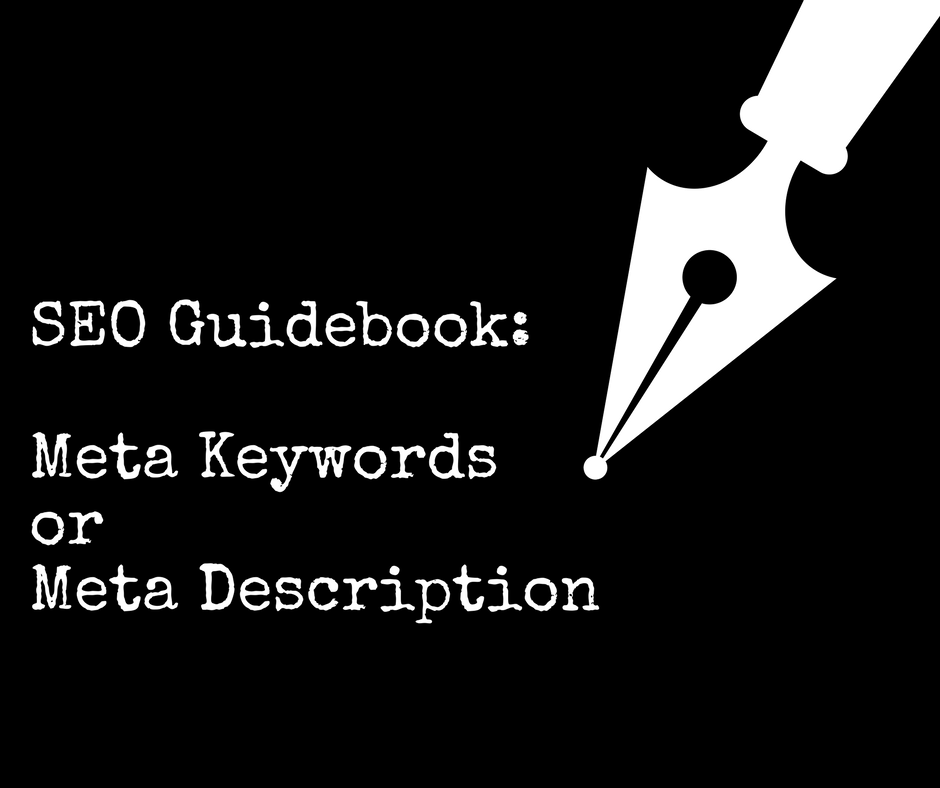SEO Guidebook: Meta Description or Meta Keywords
- August 9 2017
- Ranjan
If you are new to the field of search engine optimization, then by this time you may have gone through a lot of SEO Guidebook or you might have talked to the industry veterans. Two words, that kept popping up every now and then, is Meta Keyword and Meta Description. So you might have already started planning to optimize your site for certain keywords or meta keywords. But how effective are these really? and which has a better advantage over the other? This is a common question we all face.
Even when I started reading about SEO these are two of the many questions that kept coming to my head. So based on recent industry trends and webmasters’ opinions, we have decided to put this article out there, to help you out with your doubts.
SEO Guidebook: Meta Keywords
Let me first tell you what keyword is. A keyword is a collection of words or phrases that define the topic of significance that helps search engines understand the purpose of your website.
When a user enters a search query in the search bar of the search engines, it searches its own index of all the web pages that contain words from the search query. And based on how similar or dissimilar the appearing orders of the words are, they rank the web pages for that specific keyword. Search engines look for these keywords in a page’s URL, headers, titles, paragraph tags, and image alt text.
Now a meta keyword is a short collection of the most important words of your website page, included in the meta data for your page. Ex. <meta name=”keywords” content=”marketing, inbound marketing, content optimization”>.
But a few years back, most search engines stopped using meta keywords as a factor in their search algorithms. Meta keywords are no longer necessary to include in the meta description when optimizing your website pages for search engines like Google, Yahoo or Bing.
Some smaller search engines may still use meta keywords as a ranking factor in their search algorithms, but the use is limited. But adding a meta keyword in your website meta description isn’t going to negatively impact your website.
SEO Guidebook: Meta Description
Now coming to meta description, the meta description is a 160 words snippet that summarizes the content of your whole website. Whenever someone searches for something on the search engine, the search engines will show the snippet if it contains similar words as the search query.
Meta description might not be tied directly to search engine rankings, are extremely important in gaining unique users from SERPs. These short paragraphs are your opportunity to “advertise” and “attract” content to other users and helps searchers to decide whether the content is relevant and contains the information they are looking for the search query.
Now, you see that meta description has no direct connection with search engine ranking. But it is still more important than your meta keywords. Because it actually decides the number of unique website visitors. And if more people visit your website for one particular search term, the search engine will automatically consider your site to be more helpful for that query and it will push you up in the ranking chart.
One good practice according to our understanding is, always combine the meta keywords that you want to use to target a particular section of the audience and the meta description. That way, you can use both and search engines will value your website more. But keep in mind that the meta description can only be visible up to 160 characters. So plan your keywords accordingly.
Keep following our SEO Guidebook series for more posts on how to optimize your online teaching website. In the mean time, you can sign up on Learnyst to launch your search engine optimized branded teaching platform and app.


Leave your thought here